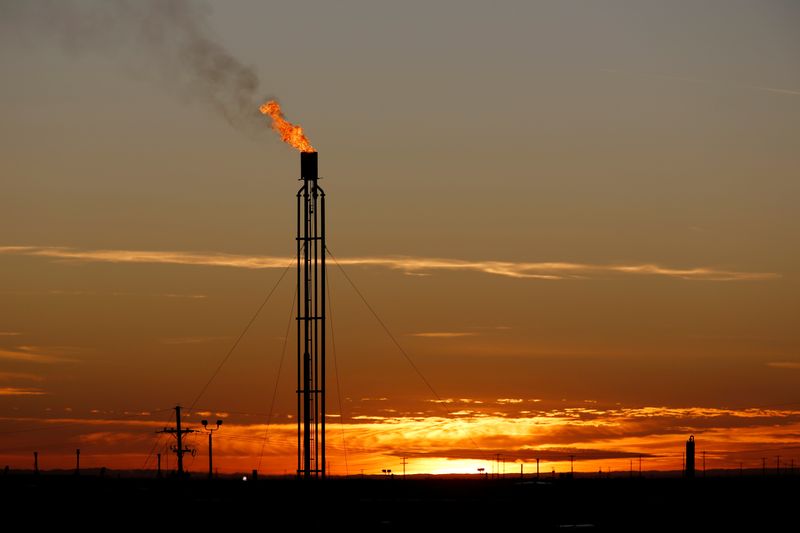By Jeff Mason
WASHINGTON (Reuters) - The United States will not ask U.S. domestic oil companies for a coordinated cut in production to counter a historic meltdown in global prices and is still awaiting the details of planned cuts in Saudi Arabia and Russia, a senior administration official told Reuters on Thursday.
Earlier, President Donald Trump said in a tweet that he expected Saudi Arabia and Russia to cut approximately 10 million barrels from daily production in a newly reached deal, a comment that sparked a jump in oil prices following weeks of steep declines that have threatened U.S. drillers.
The official said details of planned reductions remained unclear, but a big cut was expected.
Trump was set to meet with leaders of U.S. oil companies on Friday to discuss the state of the oil market. But he will not ask them to agree on a coordinated drop in supplies, said the official, who spoke on condition of anonymity.
The official said the United States cannot orchestrate a mandated cut in domestic production and noted that U.S. companies had already cut production in response to a collapse in market demand. They did not have to be asked to cut, the official said.
Both Moscow and Riyadh have said they cannot shoulder the responsibility of balancing the global oil market without the help of other major producer nations, as the coronavirus pandemic brings global economies to a standstill.
Russian Energy Minister Alexander Novak said on Thursday that Moscow was no longer planning to raise output and said it was ready to cooperate with the Organization of the Petroleum Exporting Countries and other producers to stabilize the market.
Saudi Arabia, the de facto head of OPEC, called on Thursday for an emergency meeting of OPEC and non-OPEC oil producers, an informal grouping known as OPEC+, state media reported, saying it aimed to reach a fair agreement to stabilize oil markets.
The senior administration official described Trump as a broker between Saudi Arabia and Russia, calling their leaders multiple times to help resolve the price war. The president was in a good mood about the developments, he said.
Trump hinted on Wednesday that he had measures in mind if the two countries did not reach a deal.
"I do believe there's a way that that can be solved or pretty well solved. And I'd rather not do that. I think that Russia and Saudi Arabia, at some point, are going to make a deal in the not-too-distant future," he told reporters.
The official said tariffs on imported crude oil had come up as a potential solution to help domestic producers but indicated they were not under serious consideration. It would be difficult to impose tariffs when transactions were down, he said.
Trump has emphasized U.S. energy independence, deregulation and less-stringent environmental standards as part of his push to build up the industry at home, and the United States has grown into the world's largest producer of oil and gas thanks to a technology-led boom in drilling.
The official, however, predicted a shakeout within the U.S. oil industry and said it was not yet clear whether the government will provide financial support to mid- and small-sized oil companies. The official noted the bigger suppliers were not opposed to squeezing out the smaller ones.
The government was also considering suspending royalty payments on oil production on federal property to help domestic suppliers cope with the downturn, he said.
The American Petroleum Institute, which represents big U.S. oil and gas drillers and will be represented at the meeting with Trump, said the industry prized its independence from government-mandated output cuts.
"What sets us apart as the world’s energy leader is the innovation of this American industry and the value of free market competition," said Scott Lauermann, a spokesman for the group.

Separately, the U.S. Department of Energy on Thursday announced it would lease space to U.S. oil producers to store oil in the nation’s emergency stockpile, to help them with a shortage of available commercial storage capacity.
